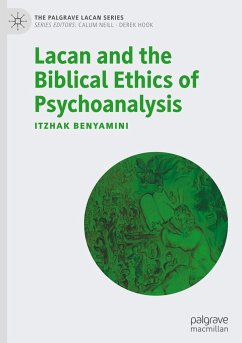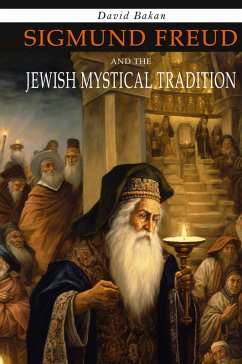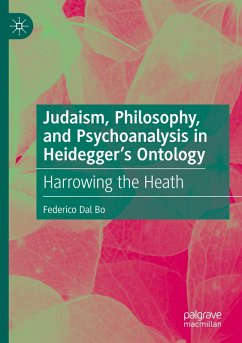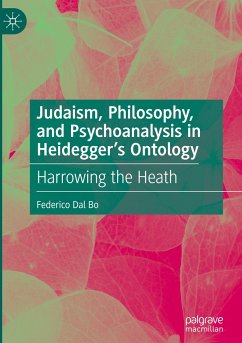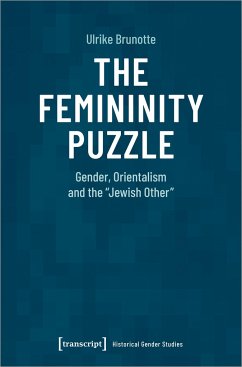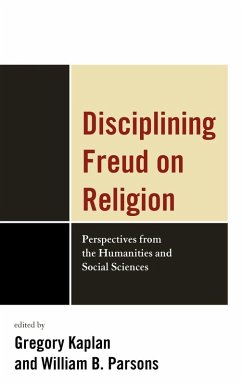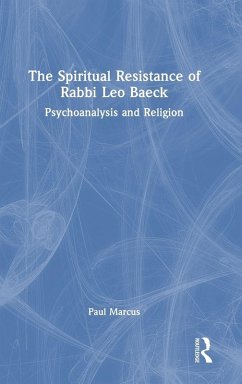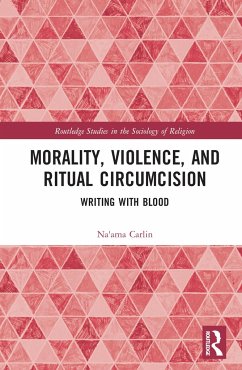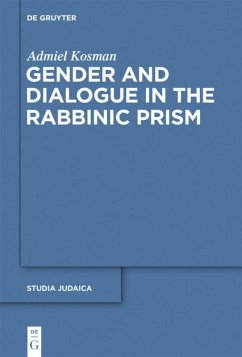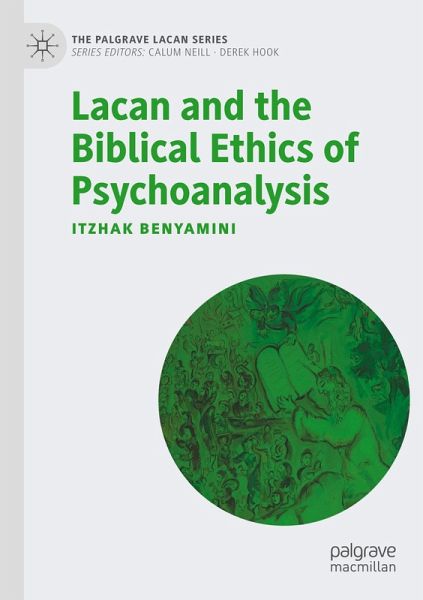
Lacan and the Biblical Ethics of Psychoanalysis
Versandkostenfrei!
Versandfertig in 6-10 Tagen
113,99 €
inkl. MwSt.
Weitere Ausgaben:

PAYBACK Punkte
57 °P sammeln!
In this fascinating and ground-breaking book, Itzhak Benyamini uses discourse analysis to lay out the way Lacan constructed his own intellectual discourse informed by Judeo-Christianity. Offering an understanding of Lacan's emergence and intellectual struggles with significant contemporary intellectuals, the author builds a panoramic view of the entire psychoanalytic discourse at the time of the foundational post-Freudian generation. By engaging in close reading of texts and seminars given by Lacan between the 1930s and 50s, Benyamini uncovers the coming-into-being of Lacan's key concepts: The...
In this fascinating and ground-breaking book, Itzhak Benyamini uses discourse analysis to lay out the way Lacan constructed his own intellectual discourse informed by Judeo-Christianity. Offering an understanding of Lacan's emergence and intellectual struggles with significant contemporary intellectuals, the author builds a panoramic view of the entire psychoanalytic discourse at the time of the foundational post-Freudian generation.
By engaging in close reading of texts and seminars given by Lacan between the 1930s and 50s, Benyamini uncovers the coming-into-being of Lacan's key concepts: The Mirror Stage, the Imaginary, the Real, the Symbolic, the Name-of-the-Father, the Other, jouissance, and das Ding. The author argues that Lacan wished to regulate this process of conceptualization by connecting the concepts of the "Father" and the "Other" with themes from the Judeo-Christian tradition, especially the Biblical one, to create a clinical ethic, that does not reflect aworldview or ideology and is guided solely by the analyzand's unconscious desire.
By engaging in close reading of texts and seminars given by Lacan between the 1930s and 50s, Benyamini uncovers the coming-into-being of Lacan's key concepts: The Mirror Stage, the Imaginary, the Real, the Symbolic, the Name-of-the-Father, the Other, jouissance, and das Ding. The author argues that Lacan wished to regulate this process of conceptualization by connecting the concepts of the "Father" and the "Other" with themes from the Judeo-Christian tradition, especially the Biblical one, to create a clinical ethic, that does not reflect aworldview or ideology and is guided solely by the analyzand's unconscious desire.



